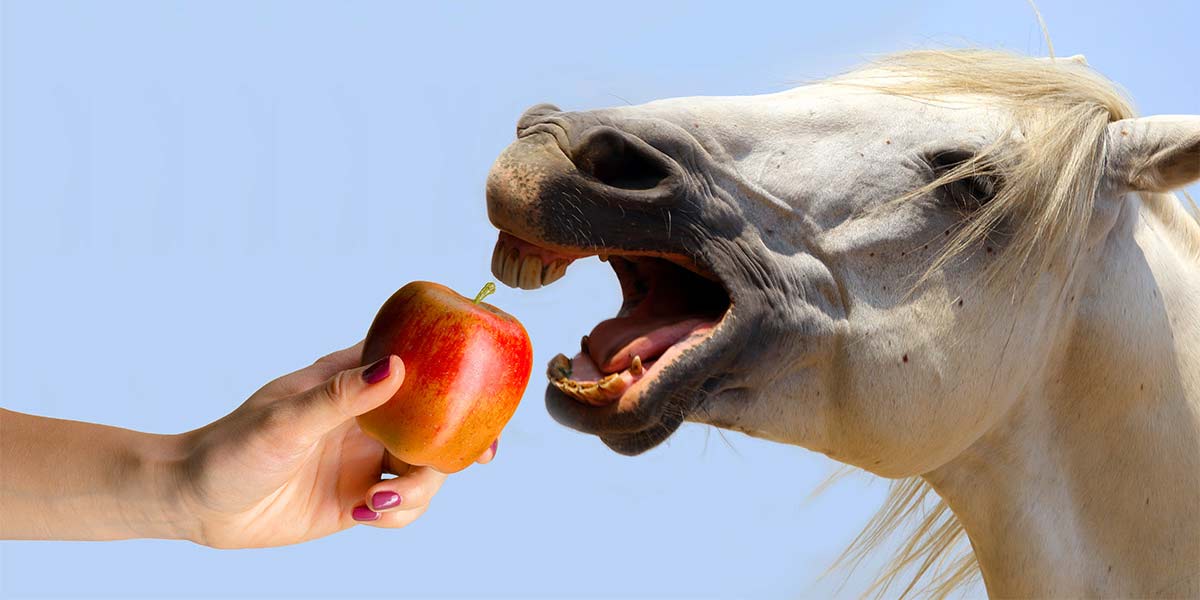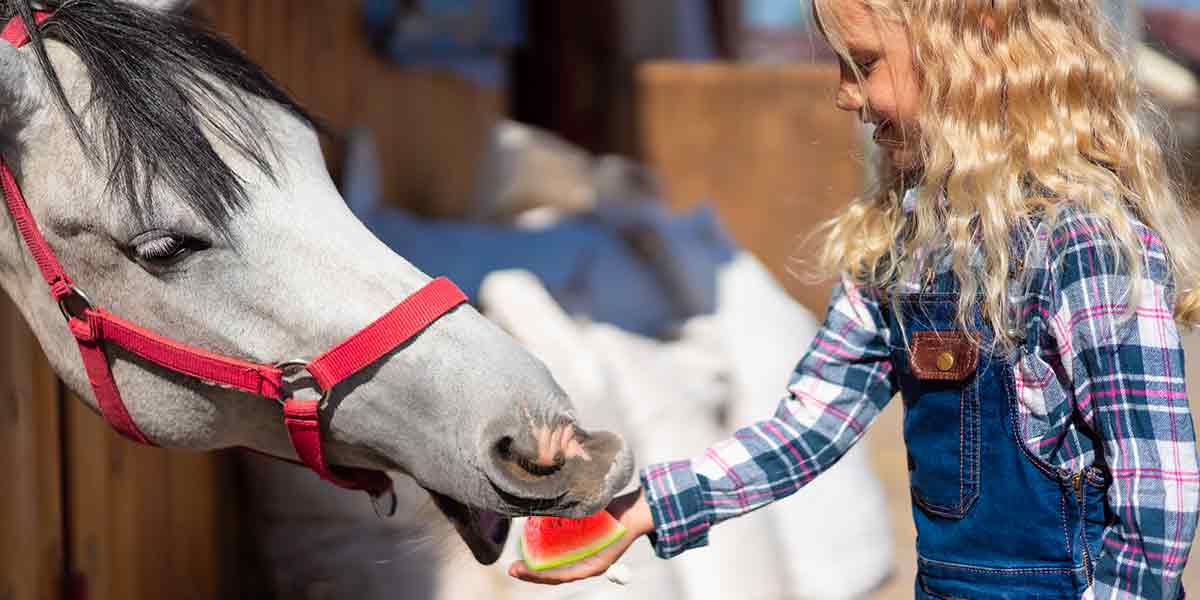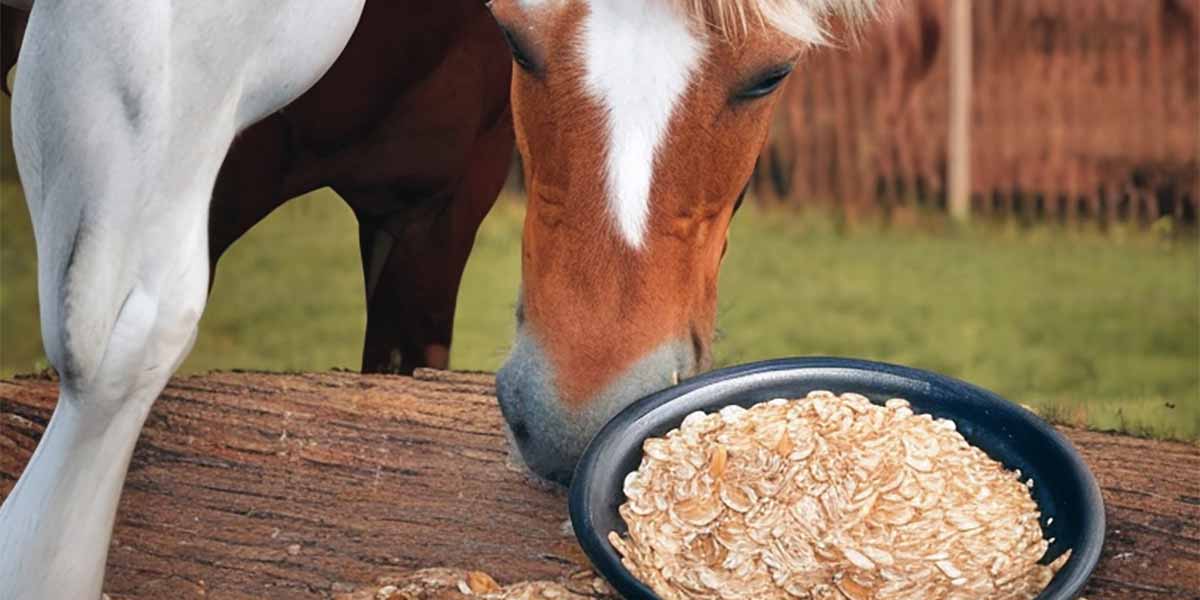Apples are a popular fruit, but they’re also a common ingredient in many horse feeds. So, you may be wondering: Can I feed my horse apples? The short answer is yes, but there are a few things to consider before giving your horse apples.
As an affiliate, we earn from qualifying purchases. We get commissions for purchases made through links in this website’s posts from Amazon and other third parties.
In this blog post, we’ll explore why apples are a popular ingredient in horse feeds and give you tips on feeding apples to your horse.
Can horses eat apples?
Yes, horses can be fed apples. However, it is important to be aware of the potential problems that can arise when feeding horses apples.
Watch the next video to find out how easily a horse can eat apples:
As you can see in the video above, horses by nature are cutting apples with their teeth into smaller pieces to eat them. Same is advised to you to feed your horse apples.
Therefore, it is important to be mindful of how many apples a horse is being fed and the other factors that can affect the health of the horse. In this article, we will discuss the potential problems that can be associated with feeding horses apples, as well as solutions for each problem.
Reasons why you should feed your horse apples: nutritional benefits and health benefits.
Feeding your horse apples is a great way to provide them with valuable nutrition and health benefits.
Apples are a source of vitamins
Apples are a great source of vitamins A and C, folate, and dietary fiber, which are all important for healthy horse nutrition. Vitamin A aids in eye and skin health, while vitamin C helps keep the immune system strong. Folate helps to synthesize red blood cells and dietary fiber helps to keep the digestive system regular.
Antioxidants
Apples also contain a high amount of antioxidants, which help protect the body from free radical damage. Additionally, apples are low in sugar, if fed in moderation, which is helpful for horses that are prone to laminitis.
Dental benefits
In addition to the nutritional benefits, apples can also provide your horse with several health benefits. Eating apples can help to keep your horse’s teeth and gums healthy as the fibrous texture of apples helps to scrape plaque off of the teeth.
Coat and skin benefits
Apples can help improve your horse’s coat and skin health, thanks to the high levels of vitamin A. Finally, apples can also help to reduce inflammation in the body, as they are a natural anti-inflammatory.
Overall, feeding apples to your horse can provide them with many valuable nutritional and health benefits. However, it is important to exercise caution when feeding apples to your horse, as there are potential side effects that you should be aware of.
Can I feed my horse apples? Feeding apples to horses is one of the most common treats. However, it can cause potential health problems. Here are the potential risks of feeding your horse apples:
Digestive issues
The most frequent issue is digestive problems since apples are high in sugar and can cause an imbalance in the horse’s digestion.
Allergies
If fed in excess, they can cause colic and other gastrointestinal issues. Horses can also suffer from allergies when eating apples, as the fruit can be highly allergenic in some cases. Finally, apples may contain toxins that can harm horses, such as cyanide, which can be toxic if consumed in large quantities.
If a horse develops any digestive issues or allergies, it is essential to discontinue feeding apples immediately. By monitoring a horse closely when feeding treats, such as apples, it is possible to minimize the risks and ensure the health and safety of the horse.
Horse’s behavior
In addition to the health risks, apples can have a negative effect on a horse’s behavior. Overeating sugar can cause a horse to become hyper and agitated, making them harder to handle.
Apples are also high in fiber, which can cause a horse to become bloated and uncomfortable.
Weight gain
Lastly, apples can also cause weight gain, which can put a strain on a horse’s joints and muscles.
When feeding apples to horses, it is essential to do so in moderation. You should wash thoroughly the apples and only feed small quantities to ensure the horse’s safety.
Obesity
One of the potential problems associated with feeding horses apples is obesity. Apples are high in sugar, and if fed in excess, can cause horses to become overweight.
To avoid this, only a small amount of apples should be fed and the other types of feed should be monitored to ensure that the horse is not receiving too many calories. In addition, regular exercise and monitoring the horse’s weight can help to ensure that obesity does not become an issue.
Laminitis
Another potential problem associated with feeding horses apples is laminitis. Laminitis is a condition in which the laminae, the soft tissue that connects the hoof wall to the coffin bone, becomes inflamed. This can be caused by too much sugar in the horse’s diet, so it is important to not overfeed apples. Also, monitoring the horse’s diet and ensuring that the horse is not overeating can help to reduce the risk of laminitis.
Colic
Finally, colic is another problem that can be caused by feeding horses apples. Colic is a general term for abdominal pain and can be caused by the horse eating too much of any type of feed, including apples. To prevent colic, it is important to feed the horse small amounts of apples, as well as to monitor the other types of feed that the horse is consuming. Additionally, providing the horse with ample time to exercise can help to reduce the risk of colic.
It is important to introduce the apples slowly and in small amounts. Finally, it is important to remember that apples should not be fed to horses with any type of respiratory issues, as the acids in apples can exacerbate the problem.
In conclusion, feeding horses apples can be beneficial to their health and well-being, as long as it is done in moderation and other potential problems are taken into consideration. By monitoring the number of apples consumed, as well as the other types of feed, it is possible to ensure that the horse is not at risk for developing obesity, laminitis, or colic.
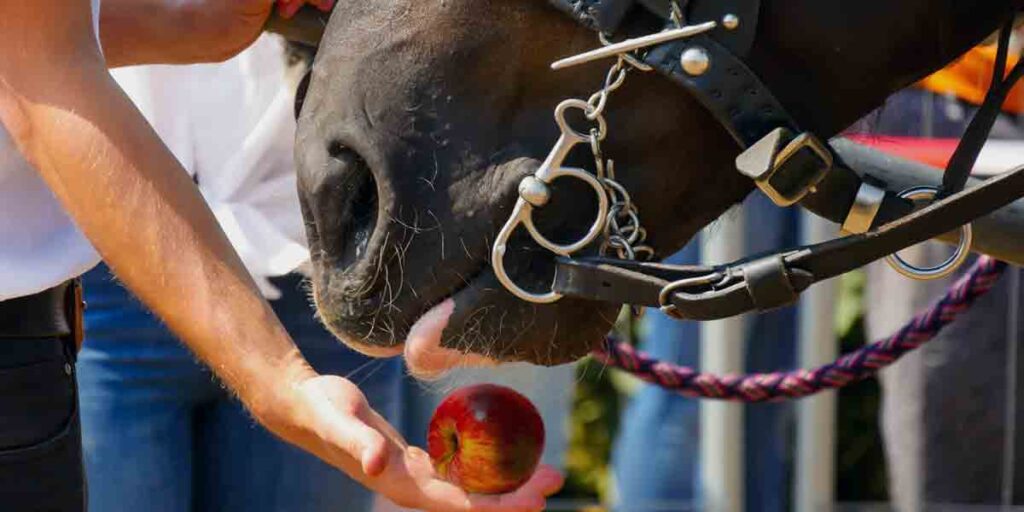
Can the seeds of apples hurt my horse?
Well, if you feed your horse one to two apples a day there is no reason to doubt your horse will stay healthy. To be precise, more than 270 seeds can hurt a horse’s health, An apple typically contains zero to 20 seeds.
The best types of apples to feed your horse:
When it comes to feeding horses apples, there are three main types to consider:
- Organic apples,
- Cooked apples,
- Store-bought apples
Organic apples grow without the use of synthetic chemicals, pesticides, or fertilizers. They are generally considered to be the healthiest type of apples to feed horses.
Cooked apples are apples that have been peeled, cored, and cooked down to a mash-like consistency. This type of apple is easier to digest and is less likely to cause digestive upset.
Store-bought apples are apples that have been processed and packaged for human consumption. While these apples may contain added sugar and preservatives, they are still a good option for horses.
You should wash all types of apples and cut them into small pieces before giving them to a horse. It is important to note that the seeds of apples contain cyanide and should never be fed to a horse.
How to prepare apples for your horse:
Feeding apples to horses is a great way to provide them with a healthy snack. Preparing apples for horses requires some effort, but it is well worth it for the nutrition and satisfaction that comes with providing your horse with a tasty treat.
To prepare apples for your horse, the first step is to wash them thoroughly. This will remove any dirt or bacteria that may have accumulated on the fruit.
After washing the apples, they need to be cut into small pieces. This will make it easier for your horse to eat the apples. Once the apples have been cut, they can be put into a blender to make applesauce. Applesauce is a great way to provide your horse with a soft, sweet snack.
Alternatively, you can also make treats with apples. Mix the apples with oats, molasses, and other ingredients, and then bake them in the oven. Both applesauce and treats are tasty and nutritious snacks that horses love. With a few simple steps, you can easily prepare apples for your horse and provide them with a delicious treat.
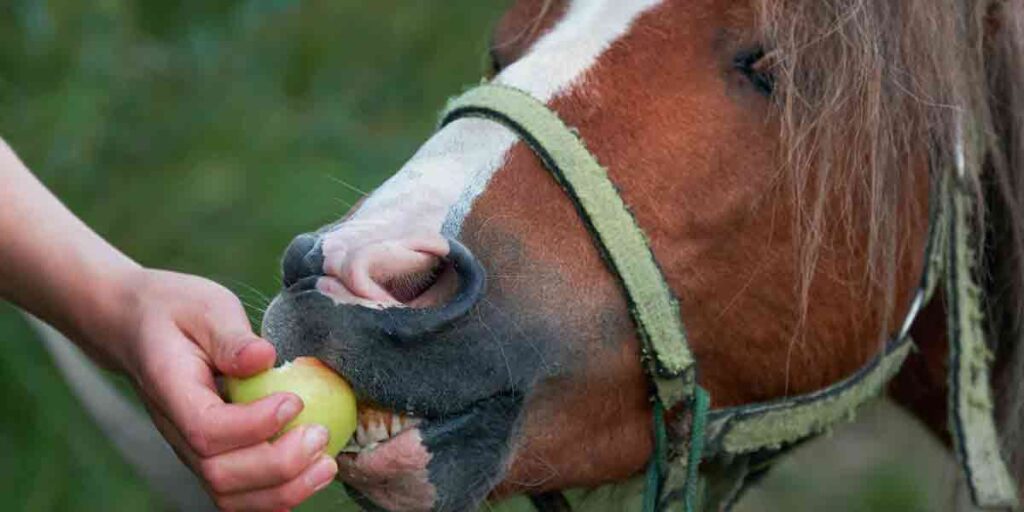
The number of apples you should feed your horse: portion size, frequency, and risks associated with overfeeding
When it comes to feeding your horse apples, portion size, frequency, and associated risks are all important factors to consider. It is not a good idea to feed your horse more than one to two apples per day, however, a more appropriate portion size would be one medium to large apple per day.
As with any other food source, it is important to feed it to your horse in moderation, to avoid overfeeding. Too many apples can be detrimental to your horse’s health.
In addition to portion size, the frequency of feeding apples to your horse is also important. Apples should be fed no more than once a day, as an occasional treat. Overfeeding apples can build up sugars in your horse’s system, which can be dangerous for their health.
It is also important to note that you should not use apples as a meal replacement for your horse; instead, you should give them as an occasional snack.
Overall, apples can be a great snack for your horse; however, it is important to remember that moderation and proper portion size are key.
The best time to feed apples to your horse: seasons, time of day, and other factors
Feeding apples to your horse is a great way to provide your horse with a rewarding treat and a great source of nutrition. The best time to feed apples to your horse depends on the season, time of day, and other factors.
Seasons
During the summer months, the best time to feed apples to your horse is in the morning, when the temperature is cooler and the sun is not at its strongest. This helps to ensure that the apples are still fresh and that your horse has the energy to digest them.
If you are feeding your horse apples during the winter months, it is best to do so in the late afternoon, when the sun sets and the temperature drops. This helps to ensure that the apples are still fresh and that your horse has the energy to digest them.
Time of day
In addition to the season and time of day, it is important to consider other factors when deciding when to feed apples to your horse. If your horse is an active horse, then it is best to feed them apples in the morning or late afternoon when they are not actively exercising.
On the other hand, if your horse is a more sedentary horse, you can feed them apples anytime throughout the day. It is also important to consider the type of apples you are feeding your horse. Granny Smith apples are typically the preferred type of apple for horses due to their acidity and sweetness.
Additionally, you should consider other factors such as the type of apples and your horse’s activity level. By considering all of these factors and by asking also your veterinarian you should know what’s best for your horse when feeding it apples.
Conclusion
In conclusion, apples can make for a healthy snack for horses. The crunchy texture and sweet taste can make them a favorite treat. However, it is important to be aware of the potential risks associated with apples, such as the high sugar content, and to be mindful of how much you are feeding your horse.
With the right amount of apples, your horse can enjoy a tasty and healthy snack!

